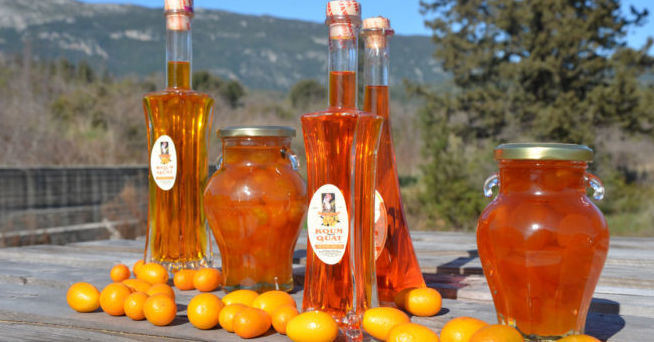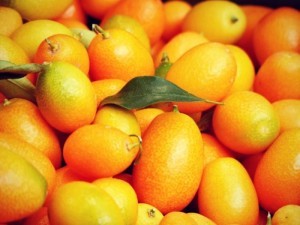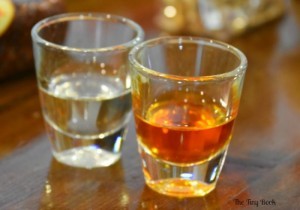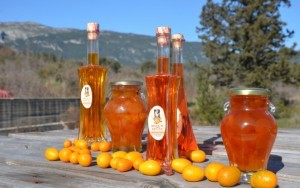When visiting the Greek island of Corfu and wandering around the picturesque little roads of the old town, you are likely to see a variety of bottles containing an enigmatic orange liquid. This is simply called Kumquat and is the local spirit that has become a trademark on the island.
Several distilleries produce the liquor, but also many other culinary products use this fruit as the main ingredient.
The tiny orange fruit is originally from China and South Japan. In Asiatic countries they also use the kumquat in bonsai, and as a symbol of good luck, it is sometimes given as a gift. The meaning of the term is golden fruit and it was introduced on the island by an English agronomist in 1860. Kumquat has, since then, turned into one of the main agricultural products of the island.
The tree, also known as Marumi kumquat, produces a small, round or oval-shaped golden-yellow colored fruit with a sweet peel. The pulp, however, is rather bitter, and is mainly used as an ingredient for spoon sweets, marmalade, and jelly — although it is possible to eat the kumquat raw.
The color of the beverage determines whether the liqueur has been made from the rind or from the fruit itself. If the color is bright orange spirit, then it has been made only with the skin. It is very sweet in taste and extremely fragrant as well. Being also quite strong in taste, it is the favorite choice for making cocktails, as well as for adding flavor to creams, puddings, and other desserts.
The white liquor, instead, is considerably less sweet and locals usually serve it after meals, the same way they serve ouzo, tsikoudia, and tsipouro in other parts of Greece. In Corfu, many local companies produce a variety of delicacies from the fruit such as kumquat syrup (ideal on Greek yogurt), marmalade, and even cookies.
Source: Gabi Ancarola/greekreporter







































